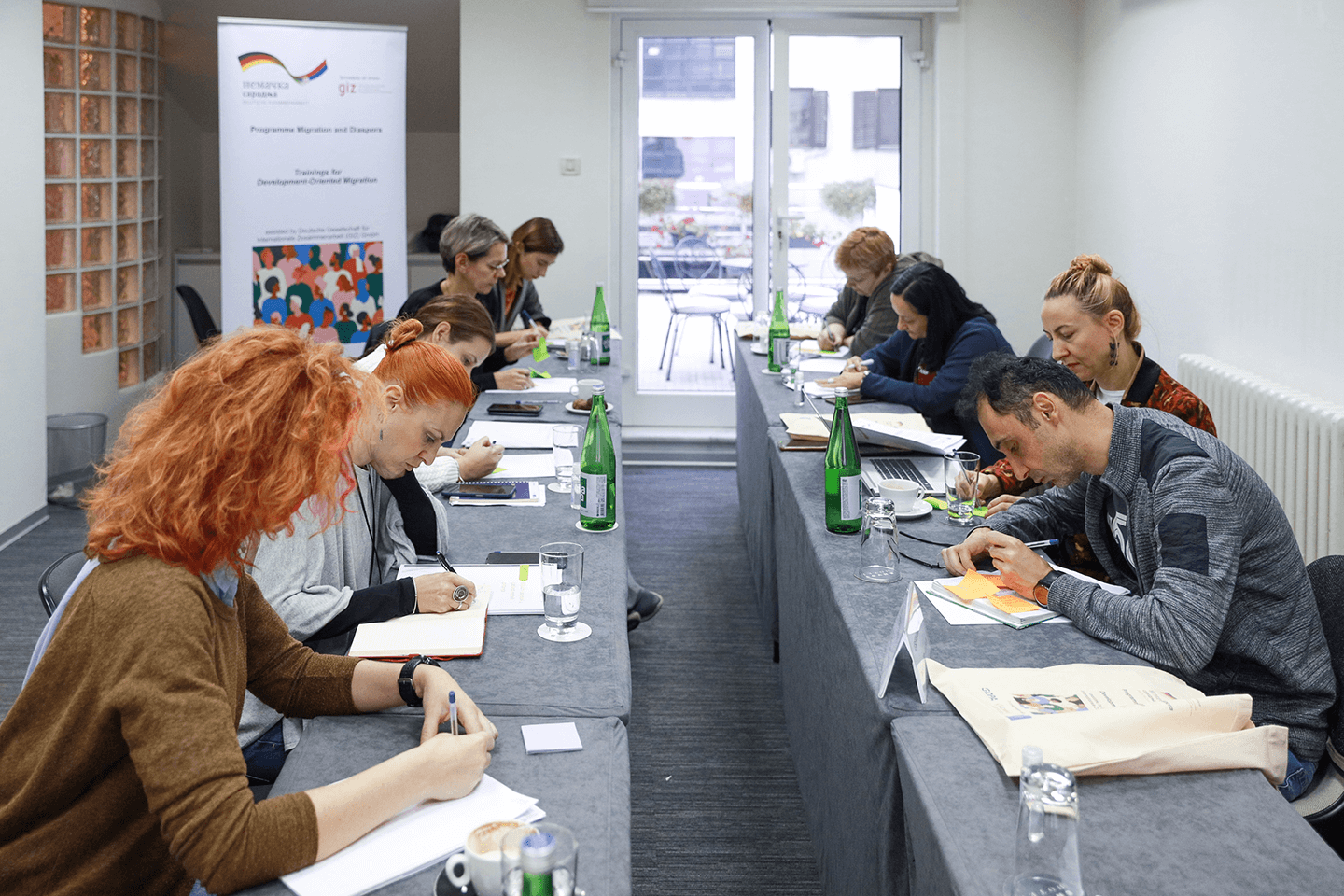The representatives of ministries, municipalities and civil society took part in a variety of trainings aimed at strengthening institutions with the support of the Global German Development Cooperation Program “Migration and Diaspora” in Serbia.
In the last training series in November, the representatives of the NGO Atina, the Belgrade Open School, the Danish Refugee Council and Caritas Serbia were trained. The training was carried out by the Consortium GOPA/ICMPD/PMCG (Society for Organisation, Planning and Training, International Center for Migration Policy Development and Policy and Management Consulting Group).
In the last training on the topic of migration and gender, future trainers were trained to continue to work on strengthening the capacities of institutions. Previous trainings had covered topics that contribute to development-oriented migration management, such as: involving the diaspora in economic development in Serbia, the link between migration and gender, circular and return migration, and data protection and management.
“Migrations in Serbia are increasingly seen as a phenomenon that brings benefits to our country. When migration management is related to economic and social development, we have a complex cooperation system that requires an active role of cross-sectoral state institutions and civil society,” said PMD Advisor, Ms. Jovana Stamenković. She added that over the past two years, GIZ has held a training series for 208 civil servants and representatives of civil society about migration and migration-related development.
“Civil society organizations are currently being trained to provide such training to their peers and users in general.“
The developed training modules are focused on two main competence sets – practical set, e.g., technical orientation, and a specific competence set related to migration issues. Parallel to the training, an online platform with all modules was developed, which can be used by the trained trainers in their future work.
Prof. Zorana Antonijević, international gender expert and trainer for the training, emphasized that the greatest importance of the training courses organized by GIZ with the group is the transfer of the concentrated knowledge in various organizations to the people working on site. Addressing the specific lack of knowledge among the officials, she emphasized that the gender aspect of migration must be represented more strongly.
“The gender perspective fundamentally changes the understanding of the causes and effects of migration. Women and men migrate for different reasons, their gender and sex have an essential role in the reason for emigration, as well as in what their route looks like and how they are received in the immigration country,“ said Ms. Antonijević.
“The training courses for civil servants should offer a better answer to concrete problems of the citizens“.
One of the aims of the „Migration and Diaspora“ programme, implemented in Serbia by GIZ, is to empower key actors in state institutions to make better use of the positive effects of economic migration and to enable knowledge transfer during and after the project period.


